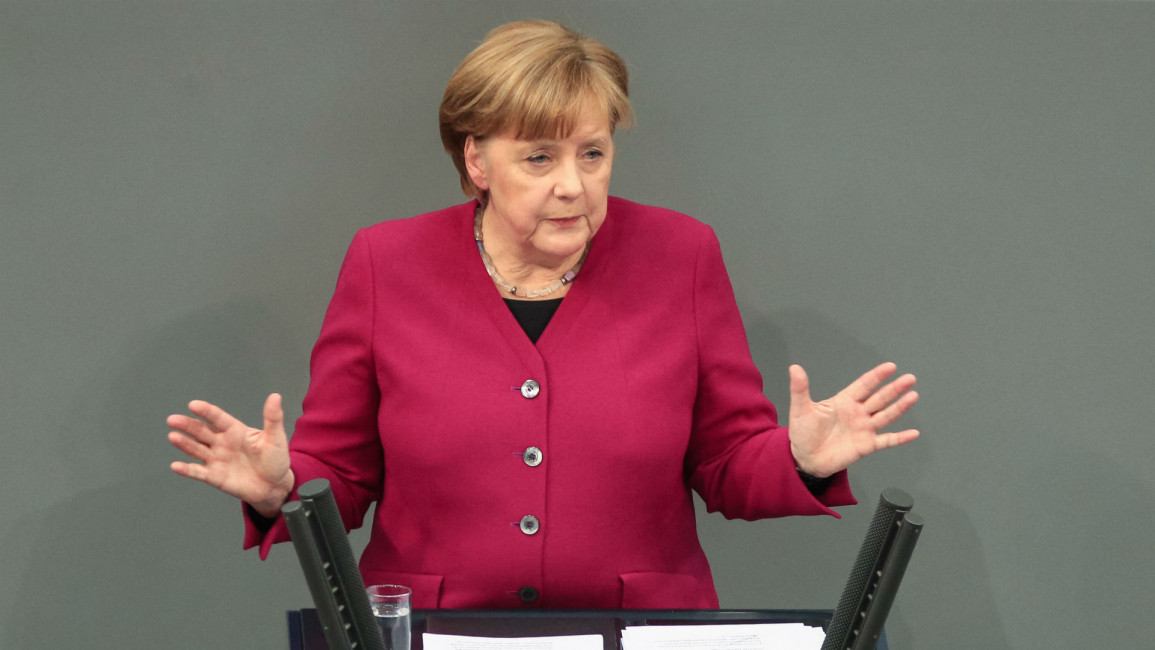German Chancellor Angela Merkel condemns Turkey's Afrin offensive
German Chancellor Angela Merkel on Wednesday strongly criticised the Turkish military offensive against Kurdish militants in their Syrian stronghold of Afrin.
"Despite all the legitimate security interests Turkey has, it is unacceptable what is happening in Afrin, where thousands and thousands of civilians are being persecuted, dying or forced to flee," she told parliament.
"We also condemn that in the strongest terms."
The People's Protection Units (YPG), a Kurdish militia, was driven out of Afrin on Sunday, one the cantons in the self-proclaimed autonomous administration run by Syria's Kurds.
Turkey considers the YPG "terrorists" allied with the outlawed Kurdistan Workers' Party (PKK) which has waged a three-decade insurgency inside Turkey.
But Washington and the anti-Islamic State international coalition have backed the YPG to spearhead its effort to oust IS jihadists from Syria.
In a wide-ranging speech on her new government's priorities, Merkel offered a full-throated defence of her decision to let in more than one milion asylum seekers since 2015, many of them from war-ravaged Syria.
She said the conflict required a "political" solution as well as a humanitarian response and warned that the current offensives were exacerbating the already desperate situation for the civilian population there.
"Just now we are seeing horrific things with the bombing for example in Eastern Ghouta," Merkel said.
"We condemn these bombings by Assad regime -- for example on a school, in the strongest terms, but also Russia which is looking on."
Syrian President Bashar al-Assad has brought swathes of territory back under his control since the war started in 2011, with help from Russia and allied forces, including Iran-backed Lebanese Hezbollah militia.
He has recently focused efforts on flushing out the last pockets that escape government control in and around the capital, the largest of them being Eastern Ghouta.
On Monday, an air strike on a school in Eastern Ghouta killed 15 children and two women who were using its basement as a bomb shelter.



